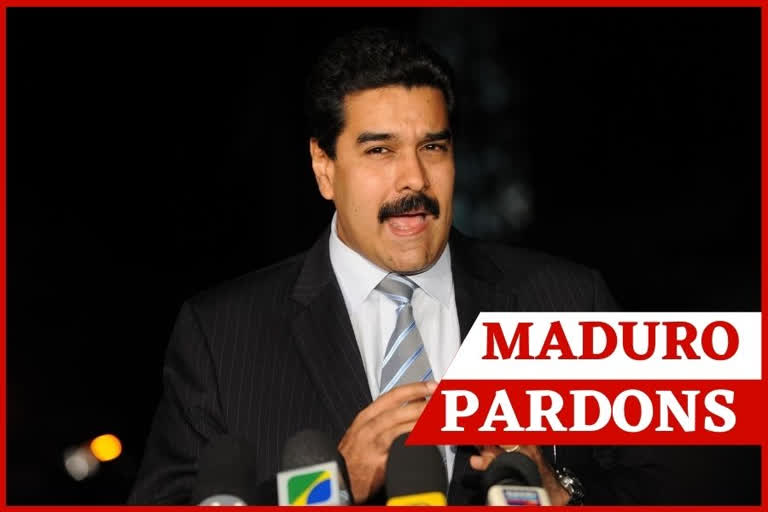Caracas: The Venezuelan government said Monday that it had pardoned more than 100 people, including dozens of political opponents who are in prison, have taken refuge in foreign embassies in Caracas or fled the country.
The move comes ahead of congressional elections set for December 6 that the coalition led by US-backed opposition leader Juan Guaido says it is boycotting because conditions for the vote are not fair.
The names listed in the pardon don’t include prominent opposition leaders such as Leopoldo Lopez, who remains inside a foreign ambassador’s residence in Caracas, or Julio Borges, a powerful opposition lawmaker who is in neighbouring Colombia.
Relatives of some people on the list who were detained in a Caracas-area prison rushed to its gates following the government's announcement.
The Caracas-based prisoner rights group Foro Penal said, "50 of those to be pardoned were what the opposition considers politically motivated. Roughly two dozen are lawmakers in the National Assembly."
Minister of Communications Jorge Rodríguez listed 110 people being pardoned, although the terms of the announced amnesty were not clear.
“The government intends to deepen the process of reconciliation for national unity so that political issues are settled by peaceful means and by electoral means,” Rodríguez said.
Maduro's government framed the presidential decree as a goodwill gesture to boost participation in the upcoming election. It wasn't immediately clear whether jailed political actors would walk free and those seeking refuge in foreign embassies would step out the gates without fearing reprisals.
Read more:US seizes Iranian gas heading for Venezuela
Geoff Ramsey, a Washington DC-based Venezuela researcher at the Washington Office on Latin America, said this is the product of backdoor negotiations between the Maduro government and moderate sectors in the opposition, which don't include Guaidó.
The fact they are openly negotiating in defiance of the US government and Guaidó shows that a growing part of Venezuela’s opposition has become frustrated with Venezuela's political stalemate, he said.
“They’re more interested in pursuing incremental agreements rather than insisting that Maduro has to go before anything meaningful can be negotiated,” Ramsey said. “The big question is whether this will go beyond political prisoners to include things like free and fair elections.”
